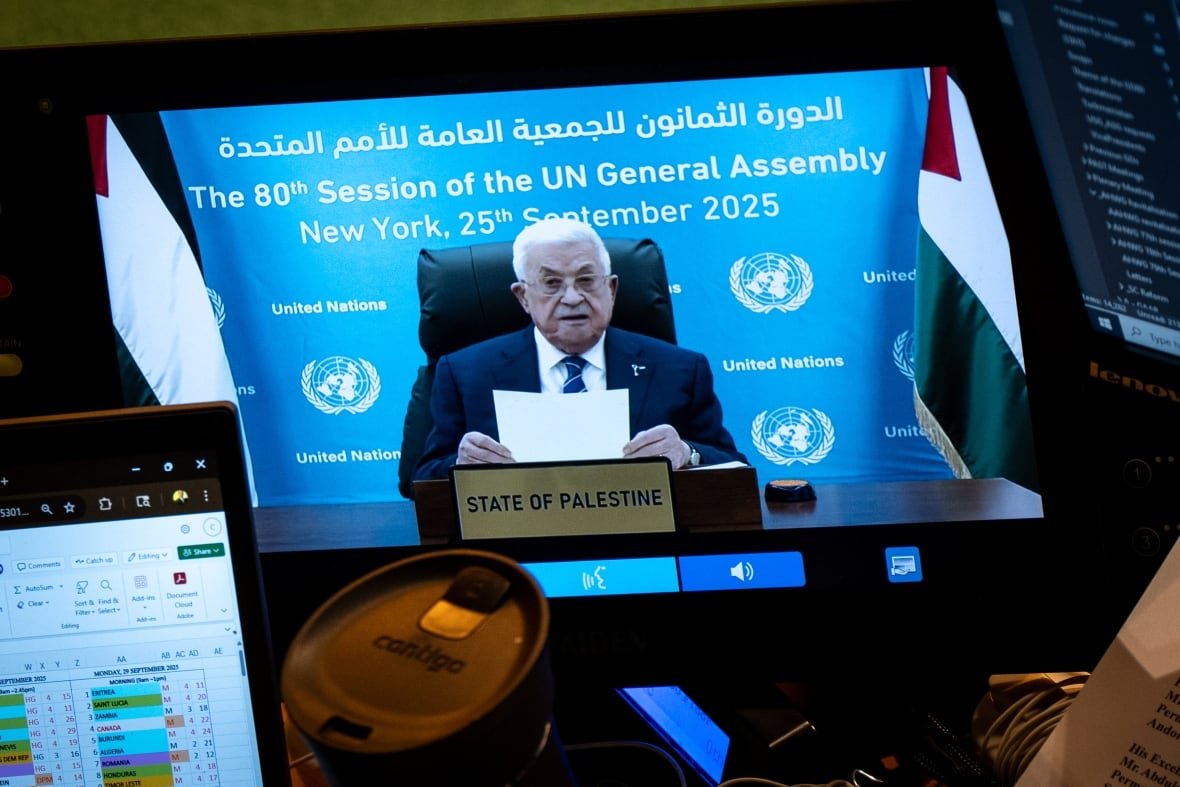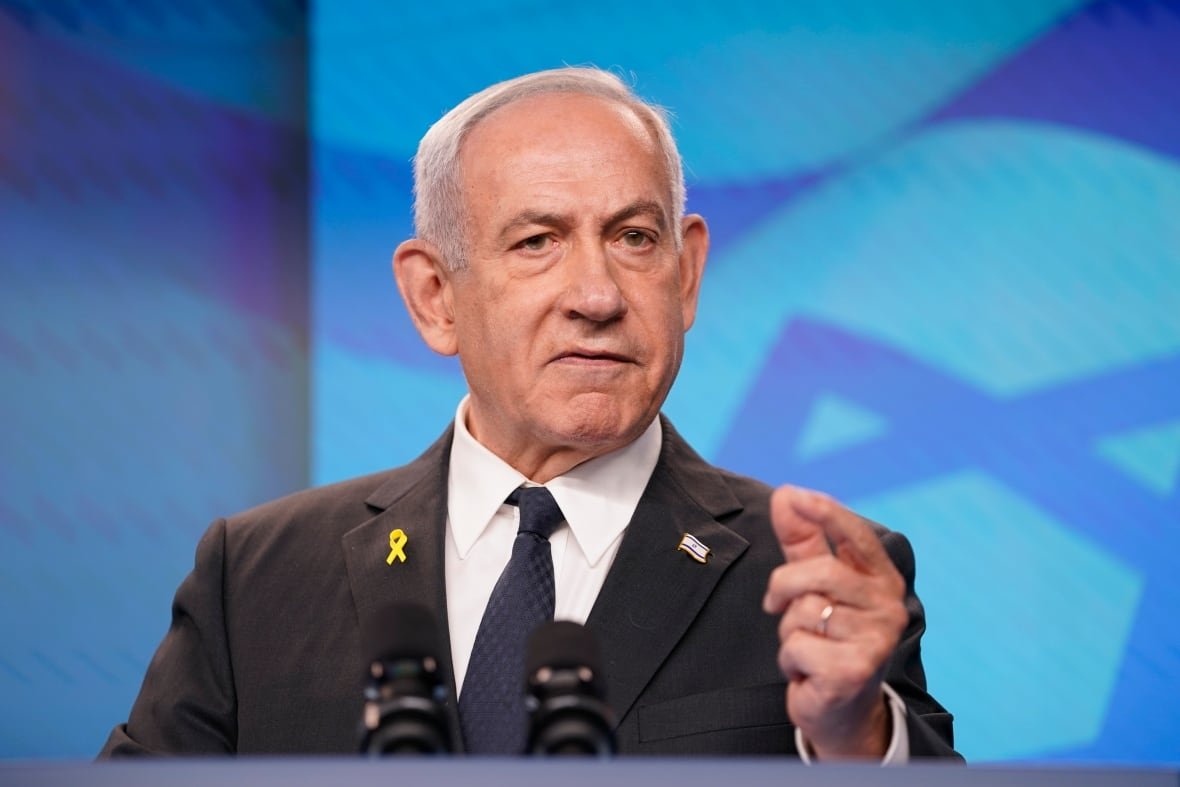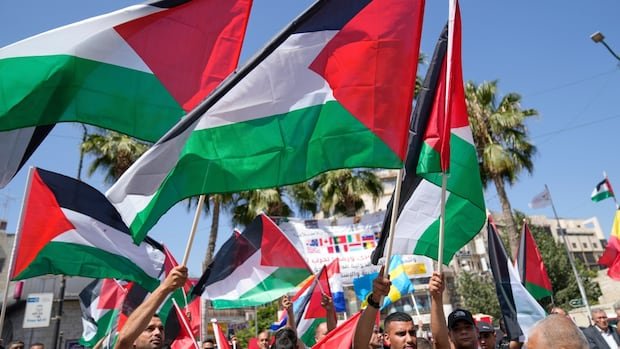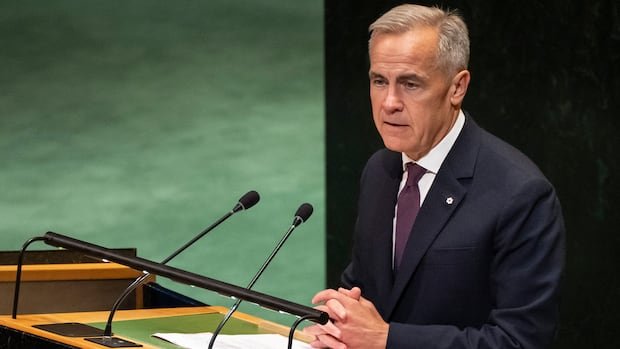Last Sunday, Prime Minister Mark Carney announced that Canada would recognize Palestinian statehood.
In recent weeks, Canada, Australia, Portugal, the U.K. and France have joined the ranks of a majority in the United Nations — 147 out of 193 — who already recognize Palestine as a state.
Carney said the recognition was prompted by the current Israeli government’s “avowed policy” of preventing a Palestinian state from ever being established.
Canada’s move was welcomed by the Palestinian Authority and Hamas officials, with the latter linking the announcement to the aftermath of the deadly Oct. 7, 2023, attacks against Israel.
Not surprisingly, these announcements of recognition were swiftly condemned by Israel. Danny Danon, Israel’s ambassador to the UN, called them “empty declarations.” Prime Minister Benjamin Netanyahu said all it does is give a “huge reward to terrorism.”
Canada and other international partners have moved to formally recognize Palestine as a state, but what difference does it make? CBC chief correspondent Adrienne Arsenault explores the timing of Canada’s move and what difference it could make.
Netanyahu also added: “It will not happen. A Palestinian state will not be established west of the Jordan River.”
With Netanyahu continuing to reject a two-state solution, what does the broader recognition of a Palestinian state signify? Is it merely symbolic or might it have some practical ramifications for Palestinians?
CBC News explores these questions.
What defines a state?
The answer to what defines a state isn’t simple, experts in international relations say.
“The reality is, it’s surprisingly fluid,” said Catherine Frost, a political science professor at McMaster University in Hamilton.
The Montevideo Convention on the Rights and Duties of States, established in 1933, laid out four criteria for statehood: a permanent population; a defined territory; government; and capacity to enter into relations with the other states.

But just because a geographical entity may meet those criteria doesn’t mean it will be certified a state, Frost said.
She suggested that recognizing statehood is subjective, meaning a state is born when another state recognizes it as such. Recognition is always binary, she said.
“It’s between one state saying, ‘I see you,’ to another state,” she said.
That’s in part because there has never been a clear basis for recognizing states, said George Kyris, an associate professor of international relations at the University of Birmingham.
Over the years, states have recognized — or not recognized — other states based on political calculations, he said.
“I think the main thing here to remember is that recognition has never been purely legal. It has been very political.”
That means there’s no universally accepted international law on how recognition should take place, Kyris said.
Does a Palestinian state meet the 1933 convention criteria? Does it matter?
The situation in the Palestinian territories has raised questions among international relations experts as to whether it meets the criteria for statehood set out by the 1933 convention.
Prime Minister Mark Carney was one of 18 national leaders to speak at the United Nations on Monday about why they’ve chosen to formally recognize a Palestinian state as the war between Israel and Hamas continues.
The borders are disputed, and no single government entity oversees or controls the main territories that would make up a Palestinian state.
“The reality today argues against this important criterion in the definition of the convention,” Daniel Kurtzer, a former U.S. ambassador to Egypt and Israel and professor at Princeton University’s school of public and international affairs, wrote in The Atlantic magazine.
However, a Palestinian state does meet the criteria of a permanent population. And while disputed, the borders of a Palestinian state are largely seen as those that would include the West Bank, the Gaza Strip and East Jerusalem.
Although Mahmoud Abbas is the Palestinian president, the Palestinian Authority, which he leads, has limited administrative control in parts of the West Bank. The West Bank, along with East Jerusalem, remain occupied by the Israeli army and under Israeli control.
The PA ran Gaza after Israel’s withdrawal from the territory in 2005, before it was ousted by Hamas two years later. Now, however, the area is a war zone and occupied by Israeli forces, with lingering questions as to who would oversee the area in a postwar scenario.
But disputed borders aren’t necessarily a barrier to statehood recognition, Frost says. She noted that the newest member of the UN, South Sudan, was accepted in 2011 while its borders had not been formed. In fact, there are still border disputes between South Sudan and Sudan.
“All of these criteria are in the eye of the beholder,” she said.
What’s the significance of Canada and others recognizing a Palestinian state?
Some international experts have characterized this latest recognition of a Palestinian state as mostly symbolic. As Kurtzer wrote in The Atlantic, “though Israel has no veto power over international recognition of the State of Palestine, it controls the territory and thus controls whether anything comes of diplomatic recognition.”
“Diplomatically, almost nothing will change as a result of increased international support for Palestinian statehood. The Palestinians will enjoy enhanced standing in some international forums, such as the International Criminal Court, but that will not materially change their experience,” he wrote.

Romain Le Boeuf, a professor in international law at the University of Aix-Marseille in southern France, echoed that from a legal point of view, the recognition is “useless.”
“Palestine has no new rights since it’s been recognized by France, Canada and [the U.K.],” Le Boeuf said.
But Le Boeuf said this recognition is important, as the number of UN members who don’t recognize Palestinian statehood continues to dwindle, and become a smaller minority.
As well, all members of the UN Security Council, except for the U.S., now recognize a Palestinian state. (U.S. opposition, however, means Palestine will not become a full UN member and instead maintain observer status.)
Le Boeuf said the new recognition from countries like Canada, Australia, Portugal, Britain and France means they could pass international treaties of commerce with the newly recognized state, which would give Palestinians more access to global goods.
Also, the recognition of Palestinian statehood provides a basis for “a complete revision of bilateral relations with Israel,” Ardi Imseis, an associate professor at the Queen’s University faculty of law and a former UN official, told the New York Times.
A country that recognizes Palestine has to review agreements with Israel to make sure Israel doesn’t violate its obligations to the Palestinian state, Imseis told the Times.
Canada already has a Representative Office in Ramallah, West Bank, but Frost says Canada could now establish an embassy there, and send an official ambassador, while Ottawa could welcome one from the newly recognized state.
“Ambassadors are very important figures in international law,” Frost said. “It’s a very special category of diplomatic relationship that you only have between states.”


